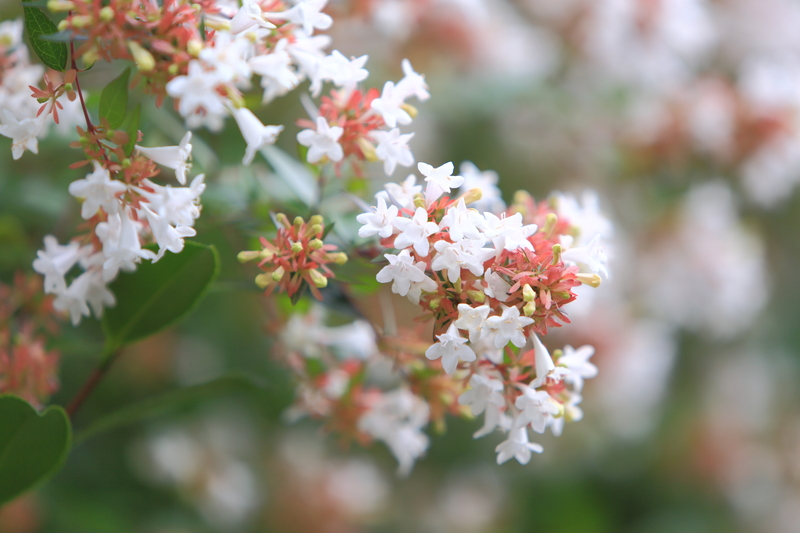Zen Oasis: Inspiring Ideas for a Calm Outdoor Sanctuary
Posted on 02/09/2025
Zen Oasis: Inspiring Ideas for a Calm Outdoor Sanctuary
Imagine stepping outside your home and instantly feeling a sense of peace, tranquility, and rejuvenation. Creating a Zen oasis, a calm outdoor sanctuary, is not merely a trend; it's a lifestyle choice that offers profound benefits for mental health, wellness, and daily living. Whether you have a sprawling garden, a cozy balcony, or a modest backyard, Zen-inspired outdoor spaces can transform your environment--and your mindset.
Understanding the Essence of a Zen Outdoor Sanctuary
The concept of a Zen oasis is rooted in Japanese philosophy, where meditation, nature, and simplicity are essential elements. Zen design encourages mindfulness and a deeper connection with nature. Minimalism is central, but each detail is intentional--from the arrangement of stones to the choice of plants and the placement of water features. Embracing the spirit of Zen teaches us to create balance, harmony, and clarity amidst life's chaos.

Benefits of Creating a Calm Outdoor Sanctuary
- Stress Reduction: Spending time in a tranquil outdoor space reduces anxiety and promotes relaxation.
- Boosts Creativity: A peaceful environment inspires fresh ideas and encourages mindfulness.
- Enhances Well-being: Connecting with nature improves mood, lowers blood pressure, and fosters overall wellness.
- Personal Retreat: A Zen oasis serves as a personal escape for meditation, reflection, or simply enjoying the present moment.
Essential Elements for a Zen Oasis Garden
1. Simplicity in Design
The foundation of any calm garden sanctuary is simplicity. Clutter detracts from peace, so focus on clean lines, open spaces, and intentional placement of each element. Incorporate symmetry and balance, using materials like gravel, smooth stones, and natural wood. Choose a muted color palette with a few accent shades to evoke serenity.
2. Mindful Plant Selection
Plants are vital in shaping the atmosphere of your Zen-inspired sanctuary. Opt for drought-resistant grasses, moss, and evergreens that need little maintenance and offer year-round tranquillity. Bamboo, Japanese maple, ferns, and ornamental grasses are excellent choices. These plants foster a lush yet understated environment for your outdoor retreat.
- Bamboo: Symbolizes strength and flexibility.
- Moss: Represents calm and resilience.
- Japanese Maple: Offers seasonal color and visual interest.
- Ornamental Grasses: Create gentle movement and sound in the wind.
3. Incorporating Water Elements
Water features are at the heart of Zen garden design. The soothing sound of trickling water masks urban noise and fosters meditation. Consider a simple stone basin, a koi pond, or a minimalist fountain. Even a tabletop water feature can make a big impact in a small courtyard or balcony Zen haven.
4. Stones and Gravel for Structure
Stones and gravel are essential for both practical and aesthetic purposes. Use river stones, pebbles, or white gravel to create winding paths, reflection areas, and visual contrast. Raked gravel patterns symbolize flowing water and invite mindfulness. Strategically placed large rocks represent mountains, adding grounding and stability to your sanctuary.
5. Comfortable and Minimalist Seating
Your sanctuary should invite relaxation. Choose minimalist benches, floor cushions, or tatami mats for seating. You might incorporate a low wooden platform or stone stools. Ensure seats are positioned thoughtfully--perhaps near a water feature or under a shady tree--encouraging contemplation and quiet conversation.
6. Pathways to Tranquility
Winding or stepping-stone paths encourage exploration, guiding visitors to various elements within the Zen oasis. These paths can be made from natural materials like flagstone, timber planks, or weathered brick. As you walk these paths, you naturally slow down, fostering mindfulness and presence.
7. Strategic Use of Lighting
Outdoor lighting in a Zen-inspired sanctuary should be subtle and warm. Use lanterns, solar-powered lights, or string lights nestled in trees or shrubs. Avoid harsh spotlights; instead, illuminate pathways and focal points to evoke a soft glow that invites evening meditation or quiet gatherings.
8. Incorporating Natural Sounds
The soundscape of your outdoor sanctuary is as important as the visual landscape. Wind chimes, rustling bamboo, the splash of water, or nearby bird feeders can make the space feel alive yet soothing. Integrate natural elements purposefully to foster multisensory relaxation.
Creative Zen Garden Ideas for Every Space
Small Balcony Zen Retreat
- Use lightweight planters with bamboo or tall grasses for privacy and greenery.
- Add a compact tabletop water feature for soothing sound.
- Lay down floor cushions or a tatami mat for meditation.
- Hang sheer curtains and string lights for a cozy, calming glow at night.
Backyard Zen Courtyard
- Designate a sand or gravel area for raking meditative patterns.
- Install a minimalist wooden deck with a low table for tea ceremonies.
- Incorporate large stones or boulders as natural sculptures.
- Build a pergola with climbing wisteria for shade and visual interest.
Spacious Zen Oasis Garden
- Create winding pathways with river stones leading to secluded nooks.
- Plant reflective Japanese maples and evergreen pines for year-round color.
- Install a central koi pond or a stream with stepping stones.
- Build a meditation platform overlooking the water feature, surrounded by bamboo.
Innovative Zen-Inspired Details
- Vertical Zen Walls: Use climbing vines, moss walls, or wooden trellises to create privacy and natural beauty.
- Portable Fire Bowls: Add warmth and ambiance for evening relaxation.
- Handmade Sculptures: Choose minimalist artworks or meaningful stone lanterns for added inspiration.
- Zen Herb Garden: Grow calming herbs like lavender, rosemary, and chamomile for soothing scents and tea.
Tips for Maintaining a Zen Outdoor Sanctuary
A truly peaceful garden requires ongoing care and thoughtful attention:
- Prune plants regularly for neatness and health.
- Keep water features clean to prevent algae buildup and mosquitoes.
- Rake gravel and sand areas for meditative practice and tidiness.
- Refresh seating areas with new cushions or mats as needed.
- Embrace seasonal changes--let fallen leaves decorate your sanctuary in autumn or add cozy blankets in winter.
The Power of Meditation Spaces in Zen Gardens
Dedicate a specific corner of your Zen outdoor oasis to meditation or yoga. A simple platform, a shaded bench, or an open grassy patch can suffice. Add a small altar, incense holder, or inspirational quotes to foster intention and focus. This reserved sanctuary space will become a daily retreat, helping you cultivate presence and mindful habits year-round.
Sustainable Practices for a Greener Zen Retreat
Eco-conscious choices amplify the harmony of a calm outdoor sanctuary:
- Use local and reclaimed materials to reduce carbon footprint.
- Harvest rainwater for irrigation.
- Opt for drought-resistant, native plants to minimize water usage.
- Incorporate solar-powered or LED lights to save energy.
- Create habitats for pollinators and birds to support local biodiversity.
Sustainable gardening not only benefits the planet, but deepens your connection to the natural world--a fundamental aspect of Zen philosophy.

Frequently Asked Questions about Zen Outdoor Sanctuaries
Q1: Can I create a Zen oasis in a small space?
A: Absolutely! Even a tiny balcony or patio can be transformed into a calming Zen retreat with clever use of container plants, compact water features, and minimalist seating. Focus on simplicity and quality over quantity.
Q2: What are the best plants for a Zen-inspired garden?
A: Ideal choices include bamboo, Japanese maple, evergreens, moss, and ferns. These plants provide year-round beauty and require minimal maintenance, perfect for achieving a serene atmosphere.
Q3: How important are water features in a Zen garden?
A: Water features are highly symbolic in Zen design--representing calm and flow. However, if space or budget is limited, even the simplest water element like a small bowl or tabletop fountain can introduce serenity.
Q4: Do I need to follow specific design rules?
A: The essence of Zen lies in your personal perception of peace and balance. Traditional elements guide the process, but creativity and individual taste are encouraged.
Conclusion: Embrace Your Personal Zen Outdoor Oasis
Whether you wish for a lush garden sanctuary, a minimalist balcony retreat, or a tranquil backyard space, creating your own Zen oasis is a rewarding journey. Each design choice--no matter how small--invites calm, focus, and rejuvenation into your daily life. By incorporating elements of nature, mindful design, and sustainable practices, you'll foster a calm outdoor sanctuary that enriches your spirit and supports your well-being for years to come.
Start today: Pause, envision your ideal Zen outdoor sanctuary, and take the first step toward tranquility.
```
